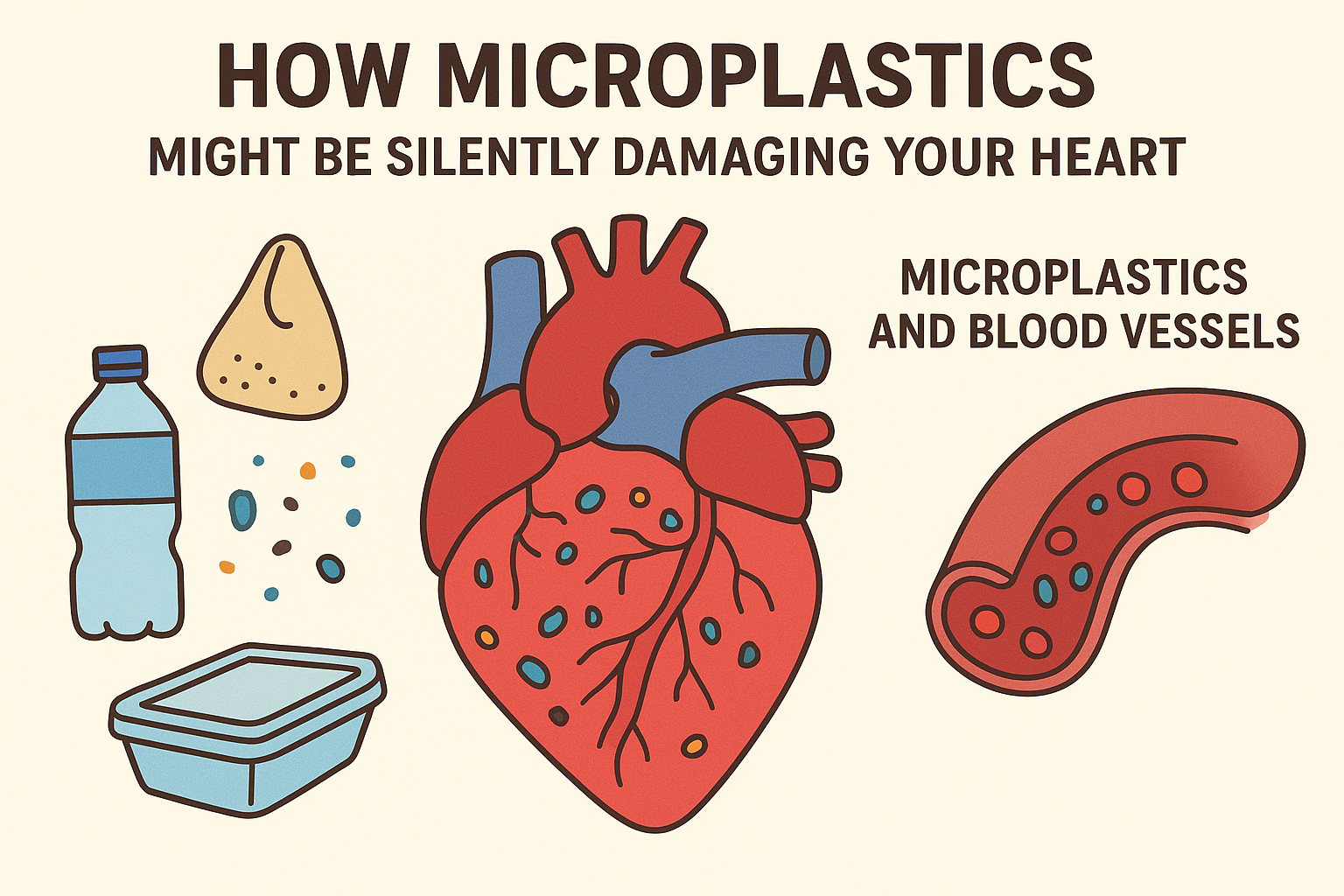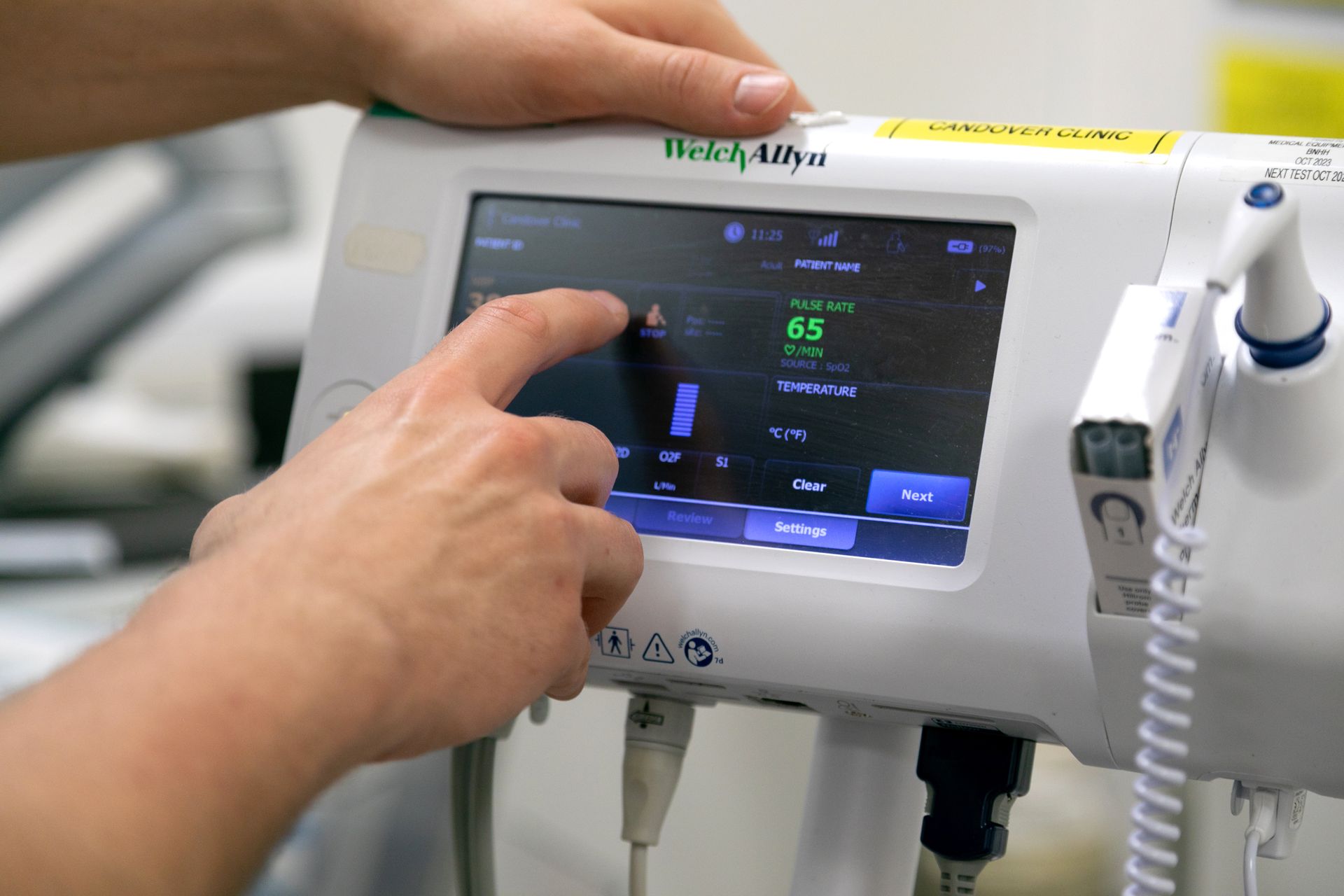How Hormones Impact Heart Health?

Hormones are pivotal in regulating numerous physiological processes, including those that govern cardiovascular health. Fluctuations or imbalances in hormone levels can significantly influence the risk of developing heart-related conditions. This article describes in details the complex relationships between specific hormonal changes and cardiovascular health, focusing on menopause, polycystic ovary syndrome (PCOS), testosterone, and estrogen.
Testosterone and Heart Disease Link
Testosterone, the primary male sex hormone, plays an important role in cardiovascular health. The relationship between testosterone levels and heart disease has been a subject of several interesting research projects and debate.
A study published in 2017 in JAMA Internal Medicine Journal showed that among men with androgen deficiency, testosterone therapy was associated with a reduced risk of cardiovascular events over a median follow-up period of 3.4 years. The study included two groups of participants: 8,808 men (19.8%) who had ever received testosterone therapy , with a mean age of 58.4 years and 1.4% having a history of cardiovascular events, and 35,527 men (80.2%) who had never received testosterone therapy, with a mean age of 59.8 years and 2.0% having prior cardiovascular events. The recruitment period spanned from January 1, 1999, to December 31, 2010, with follow-up extending through December 31, 2012. The primary outcome was a composite of cardiovascular events, including acute myocardial infarction, coronary revascularization, unstable angina, stroke, transient ischemic attack, and sudden cardiac death. The incidence of the composite cardiovascular endpoint was 23.9 per 1,000 person-years in the group, who never received testosterone therapy compared to 16.9 per 1,000 person-years in the group, who ever received testosterone therapy.
https://pubmed.ncbi.nlm.nih.gov/28241244/
A meta-analysis conducted by researchers from Imperial College London reviewed 17 trials involving nearly 3,500 participants. The study found no significant increase in cardiovascular events between the testosterone and placebo groups (7.5% vs. 7.2%, respectively) during the first year of treatment. Additionally, testosterone therapy significantly reduced some key markers of cardiovascular health, including serum total cholesterol, high-density lipoprotein (HDL), and triglycerides, compared with placebo. However, there were no significant differences in serum low-density lipoprotein (LDL), blood pressure, incidence of diabetes, and prostate adverse outcomes between the testosterone and placebo groups. The researchers concluded that their findings showed no evidence that testosterone therapy increases short- to medium-term cardiovascular risk in men with hypogonadism. However, data on its long-term safety remain limited, highlighting the need for further research to fully assess long-term outcomes.
https://www.thelancet.com/journals/lanhl/article/PIIS2666-7568(22)00096-4/fulltext
An article published in the Mayo Clinic Proceedings in 2018 described the following four highlights:
Physiologic levels of testosterone support cardiovascular (CV) health in men, while testosterone deficiency is linked to an unfavorable metabolic profile and an increased risk of cardiovascular events.
Leading health authorities—including the Food and Drug Administration, the American Association of Clinical Endocrinologists/American College of Endocrinology, and an international consensus panel—affirm that testosterone therapy is a safe and appropriate option for men with symptomatic testosterone deficiency.
Testosterone therapy should be considered for men with clinically confirmed hypogonadism and related symptoms. While current evidence does not conclusively show that testosterone therapy either increases or decreases cardiovascular risk, its use in this population is effective, evidence-based, and clinically justified.
There is a pressing need for large-scale research to further investigate the potential cardioprotective effects of testosterone therapy.
Menopause and Heart Health Risks
Cardiovascular disease (CVD) is the leading cause of death among women, claiming one life every 80 seconds—surpassing the combined mortality from all cancers. The risk of CVD rises markedly during a woman’s fifth decade of life, aligning with the onset of menopause. This transition is accompanied by significant cardiometabolic changes, including shifts in body fat distribution, altered lipoprotein profiles, and variations in endothelial function.
Key menopause-related factors—such as its timing, type (natural or surgical), and the presence of symptoms—play a critical role in influencing cardiovascular risk. In particular, early or surgically induced menopause is associated with a heightened risk of CVD.
Furthermore, common menopausal symptoms—including vasomotor disturbances (e.g., hot flashes), sleep disruptions, and mood changes—have been linked to poorer cardiac outcomes.
https://www.sciencedirect.com/science/article/abs/pii/S0378512224000690
Menopause marks a significant transition in a woman’s life. It is characterized by the cessation of menstrual cycles and a decline in estrogen levels. This hormonal shift has implications for hear health. Estrogen is known to have a protective effect on the heart, aiding in maintaining healthy blood vessels and promoting favorable cholesterol profiles. The reduction of estrogen during menopause contributes to a possible increased risk of heart disease.
A study presented at the American College of Cardiology’s Annual Scientific Session revealed that women might be more vulnerable than men to certain heart disease risk factors, despite generally leading healthier lifestyles. The study analysed data from over 175,000 Canadians without prior heart disease, tracking their diet, exercise, blood pressure, cholesterol, and other health indicators. Overall, a higher proportion of women were found to have ideal health compared to men (9.1% vs. 4.8%). Women were also less likely to be in poor health (21.9% vs. 30.5% of men). However, the impact of poor health on heart disease risk was more pronounced in women. Those in poor health had nearly five times the risk of developing heart disease compared to women with ideal health. In contrast, men with poor health faced 2.5 times the risk relative to their ideal-health counterparts. Even among those with intermediate health, the risk was elevated. Women in this category had 2.3 times the risk of heart disease compared to women with ideal health, while men had 1.6 times the risk compared to men with ideal health. Researchers speculate that hormonal factors, particularly the decline in estrogen during perimenopause, may contribute to increased vulnerability in women.
A study published in JAMA Network in 2025 found that both premature and early menopause are linked to an increased risk of type 2 diabetes (T2D), underscoring the importance of targeted public health strategies to prevent or delay the onset of T2D in postmenopausal women.
https://pmc.ncbi.nlm.nih.gov/articles/PMC11751743/
Women who experience premature or early menopause face a higher risk of cardiovascular disease. However, lifestyle modifications have been consistently linked to a reduced risk and should be encouraged throughout a woman’s life course.
https://heart.bmj.com/content/111/6/262
Estrogen and Cardiovascular Health
Estrogen plays a pivotal role in maintaining cardiovascular health, particularly in women before menopause. Estrogen exerts a well-established protective effect on the cardiovascular system. Oxidative stress plays a key role in the development of several cardiovascular conditions, including atherosclerosis, myocardial dysfunction, cardiac hypertrophy, heart failure, and myocardial ischemia. Estrogen, through its interaction with estrogen receptors, helps regulate oxidative stress within the cardiovascular system. This regulatory function offers important therapeutic insights for managing cardiovascular disease in postmenopausal women.
https://onlinelibrary.wiley.com/doi/10.1155/2021/5523516
A large body of epidemiological data supports estrogen’s cardioprotective role. One of the landmark studies in this area, published in 1976 and was part of the Framingham Study. The study analysed the relationship between menopause and cardiovascular disease and included women under 55 years of age from the original Framingham cohort of 2,873 participants. Over 20 years of follow-up, the number of person-years was similar between premenopausal and postmenopausal women; however, only 20 CVD events occurred in premenopausal women, compared to 70 in their postmenopausal counterparts. Across all specific age groups, incidence rates were consistently lower in premenopausal women—a pattern that held true for coronary heart disease. While menopause was associated with modest increases in cholesterol and hemoglobin levels, these changes did not fully account for the significantly higher incidence of CVD observed in postmenopausal women, suggesting that menopause itself may be an independent risk factor.
https://pubmed.ncbi.nlm.nih.gov/970770/
Estrogen enhances the high-density lipoprotein (HDL) cholesterol and lowers low-density lipoprotein (LDL) cholesterol, contributing to a healthier lipid profile.
https://www.ahajournals.org/doi/10.1161/01.cir.93.10.1928
Hormone Replacement Therapy and Heart Health
The use of hormone replacement therapy (HRT) to mitigate menopausal symptoms and reduce cardiovascular risk has been both widely practiced and hotly debated. The Women’s Health Initiative — a long-term national health study launched in the 1990s—initially suggested that combined estrogen-progestin therapy increased the risk of heart disease, stroke, and breast cancer in postmenopausal women. A research article published in 2002 in JAMA showed that in healthy postmenopausal women in the United States, the overall health risks of combined estrogen plus progestin therapy outweighed the benefits over an average 5.2-year follow-up. While all-cause mortality was unaffected during the trial, the risk-benefit profile observed does not support its use as a viable intervention for primary prevention of chronic diseases. The results suggest that this regimen should neither be initiated nor continued for the primary prevention of coronary heart disease.
https://pubmed.ncbi.nlm.nih.gov/12117397/
However, later analyses introduced nuance to this interpretation. A study by Manson et al published in 2013 concluded that menopausal hormone therapy presents a complex balance of risks and benefits. Results from the intervention and extended post-intervention follow-up of the two Women’s Health Initiative hormone therapy trials do not support its use for chronic disease prevention. However, it remains an appropriate option for symptom management in certain women.
https://pubmed.ncbi.nlm.nih.gov/24084921/
Gender Differences in Hormonal Impact on the Heart
The differences in hormonal influence on cardiovascular health between men and women underscore the need for sex-specific research and treatment approaches. Men are typically at greater risk for heart disease earlier in life, whereas women’s risk rises post-menopause, often equalling or surpassing that of men.
Although such statements highlight the importance of individualized prevention strategies. In women, particular attention should be given to hormonal transitions such as menopause and disorders like PCOS. In men, evaluating testosterone levels and addressing metabolic abnormalities can be beneficial for cardiovascular risk management.
Most risk factors such as abnormal lipid levels, smoking, hypertension, diabetes, abdominal obesity, psychosocial factors, dietary habits (including fruit, vegetable, and alcohol consumption), and physical inactivity account for the majority of myocardial infarction risk globally—across both sexes, all age groups, and regions. These findings highlight that prevention strategies based on these common risk factors can be universally applied for both genders and have the potential to prevent most premature cases of myocardial infarction.
https://pubmed.ncbi.nlm.nih.gov/15364185/
==========================================================================
Dr Bart Olechowski is a private consultant cardiologist, who provides expert consultations at several highly regarded clinics, including Sarum Road Hospital in Winchester, Candover Clinic in Basingstoke and Spire Clare Park Hospital in Farnham. He specialises in advising private cardiology patients on the primary prevention of cardiovascular disease, offering personalised strategies to enhance heart health through lifestyle modifications, including exercise.











